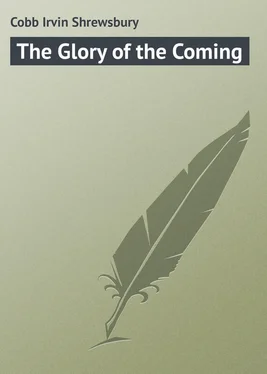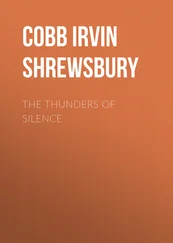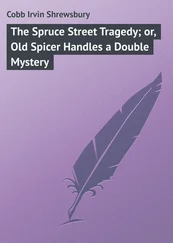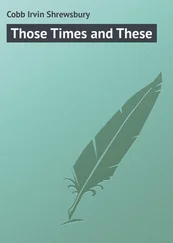Irvin Cobb - The Glory of the Coming
Здесь есть возможность читать онлайн «Irvin Cobb - The Glory of the Coming» — ознакомительный отрывок электронной книги совершенно бесплатно, а после прочтения отрывка купить полную версию. В некоторых случаях можно слушать аудио, скачать через торрент в формате fb2 и присутствует краткое содержание. Жанр: foreign_prose, foreign_language, на английском языке. Описание произведения, (предисловие) а так же отзывы посетителей доступны на портале библиотеки ЛибКат.
- Название:The Glory of the Coming
- Автор:
- Жанр:
- Год:неизвестен
- ISBN:нет данных
- Рейтинг книги:3 / 5. Голосов: 1
-
Избранное:Добавить в избранное
- Отзывы:
-
Ваша оценка:
- 60
- 1
- 2
- 3
- 4
- 5
The Glory of the Coming: краткое содержание, описание и аннотация
Предлагаем к чтению аннотацию, описание, краткое содержание или предисловие (зависит от того, что написал сам автор книги «The Glory of the Coming»). Если вы не нашли необходимую информацию о книге — напишите в комментариях, мы постараемся отыскать её.
The Glory of the Coming — читать онлайн ознакомительный отрывок
Ниже представлен текст книги, разбитый по страницам. Система сохранения места последней прочитанной страницы, позволяет с удобством читать онлайн бесплатно книгу «The Glory of the Coming», без необходимости каждый раз заново искать на чём Вы остановились. Поставьте закладку, и сможете в любой момент перейти на страницу, на которой закончили чтение.
Интервал:
Закладка:
Next day, in London, I read that not a man aboard the Tuscania , whether sailor or soldier, showed weakness or fright. I read how those Yankee boys, many of them at sea for the first time in their lives, stood in ranks waiting for rescue or for death while the ship listed and yawed and settled under them; how the British sang “God Save the King,” and the Americans sang to the same good Allied air, “My Country, ‘Tis of Thee;” and how at last, descending over the side, some of them to be drowned but more of them to be saved, those American lads of ours sang what before then had been a meaningless, trivial jingle, but which is destined forevermore, I think, to mean a great deal to Americans. Perry said: “We have met the enemy, and they are ours.” Lawrence said: “Don’t give up the ship!” Farragut said: “Damn the torpedoes, go ahead.” Dewey said: “You may fire, Gridley, when you are ready.” Our history is full of splendid sea slogans, but I think there can never be a more splendid one that we Americans will cherish than the first line, which is also the title of the song now suddenly freighted with a meaning and a message to American hearts, which our boys sang that black February night in the Irish Sea when two hundred of them, first fruits of our national sacrifice in this war, went over the sides of the Tuscania to death: “Where do we go from here, boys; where do we go from here?”
CHAPTER II. “ALL AMURIKIN – OUT TO THEM WIRES”
HE was curled up in a moist-mud cozy corner. His curved back fitted into a depression in the clay. His feet rested comfortably in an ankle-deep solution, very puttylike in its consistency, and compounded of the rains of heaven and the alluvials of France. His face was incredibly dirty, and the same might have been said for his hands. He had big buck teeth and sandy hair and a nice round inquisitive blue eye. His rifle, in good order, was balanced across his hunched knees. One end of a cigarette was pasted fast to his lower lip; the other end spilled tiny sparks down the front of his blouse.
Offhand you would figure his age to be halfpast nineteen. Just round the corner from him a machine gun at intervals spoke in stuttering accents. At more frequent intervals from somewhere up or down the line a rifle whanged where an ambitious amateur Yankee sniper tried for a professional and doubtlessly a bored German sniper across the way; or where the German tried back.
The youth in the cozy corner paid small heed. He was supposed to be getting his baptism of fire. In reality he was reading a two-months-old copy of a certain daily paper printed in a certain small city in a certain Middle Western state – to wit, the sovereign state of Ohio. He belonged to a volunteer regiment, and in a larger sense to the Rainbow Division. This was his first day in the front-line trenches and already he was as much at home there as though he had been cradled to the lullaby of those big guns grunting away in the distance. For a fact he was at home – reading home news out of the home paper and, as one might say, not caring a single dern whatsoever.
“Say, Tobe,” he called in the husky half voice which is the prescribed and conventional conversational tone on the forward edges of No Man’s Land; “Tobe, lissen!”
His mate, leaning against the slanted side of the trench ten feet away, blowing little smoke wisps up toward the pale-blue sky above him, half turned his head to answer.
“Well, what?”
“Whatter you know about this? It says here the New York Yanks is liable to buy Ty Cobb off of Detroit. Say, what’ll them Detroits do without old Ty in there bustin’ the fast ones on the nose, huh?”
“With all the money they’ll get for that guy they should worry!”
The emphatic ker-blim of a rifle a hundred yards off furnished a vocal exclamation point to further accent the comment.
The reader shifted himself slightly in his scooped niche and turned over to another page. He was just the average kid private, but to me he was as typical as type can be. I figured him as a somewhat primitive, highly elemental creature, adaptable and simple-minded; appallingly green yet at this present trade, capable though of becoming amazingly competent at it if given experience and a chance; temperamentally gaited to do heroic things without any of the theatricalism of planned heroics – in short and in fine, the incarnated youthful spirit of the youthful land which bore him.
I came upon him with his cigarette and his favourite daily and his mud-boltered feet at the tail end of a trip along the front line of a segment of a sector held by our troops, and before I made his acquaintance sundry things befel. I had been in trenches before, but they were German trenches along the Aisne in the fall of the first year of this war business, and these trenches of our own people were quite different from those of 1914. French minds had devised them, with their queer twists, and windings, which seem so crazy and yet are so sanely ordained; and French hands had dug them out of the chalky soil and shored them up with timbers, but now Americans had taken them over and, in common with all things that Americans take over, they had become as much and as thoroughly American as though they had been Subway diggings in New York City, which indeed they rather resembled; or excavations for the foundations of the new Carnegie Library in Gallipolis. ‘Tis a way our folks have. It may be a good way or a bad way – since I came over here I think the French neither understand it nor care deeply for it – but all the same it is our way.
At the beginning we quit a wrecked town that was a regimental headquarters. Its present population was all military, French and American. The villagers who had once lived there were gone to the last one of them, and had been gone for years probably. But more than by the shattered stone walls, or by the breached and empty church with its spire shorn away, or by the tiled roofs which were roofs no longer but sieves and colanders, its altered character was set forth and proved by the absence of any manure heaps against the house fronts. In this part of the world communal prosperity is measured, I think, by the size and richness of the manure heap. It is kept alongside the homes and daily it is turned over with spades and tormented with pitchforks, against the time when it is carried forth to be spread upon the tiny farm a mile or so away. The rank ammoniacal smell of the precious fertilizer which keeps the land rich is the surest information to the nose of the approaching traveller that thrifty folk abide in the hamlet he is about entering.
But this town smelled only of dust and decay and the peculiar odour of rough-cast plastering which has been churned by wheels and hoofs and feet into a fine white silt like powdered pumice, coating everything and everybody in sight when the weather is dry, and when the weather is wet turning into a slick and slimy paste underfoot.
We came out of a colonel’s billet in a narrowshouldered old two-story house, my companion and I; and crossing the little square we passed through what once upon a time had been the front wall of the principal building in the place. The front wall still stood and the doorway was unscarred, but both were like parts of stage settings, for beyond them was nothing at all save nothingness – messed-about heaps of crumbled masonry and broken shards of tiling. From the inner side one might look through the doorway, as though it had been a frame for a picture, and see a fine scape beyond of marshland and winding road and mounting hills with pine trees growing in isolated groups like the dumpings in a gentleman’s park.
In what had been the garden behind the principal house the colonel’s automobile was waiting. We climbed into it and rode for upward of a mile along a seamed and rutted highway that wound up and over the abbreviated mountain of which we held one side and the Germans the other. For the preceding three days there had been a faint smell of spring in the air; now there was a taste of it. One might say that spring no longer was coming but had actually come. The rushes which grew in low places were showing green near their roots and the switchy limbs of the pollard willows bore successions of tiny green buds along their lengths. Also many birds were about. There were flocks of big corbie crows in their prim notarial black. Piebald French magpies were flickering along ahead of us, always in pairs, and numbers of a small starlinglike bird, very much like our field lark in look and habit, whose throat is yellowish and tawny without and lined with pure gold within, were singing their mating songs. Bursts of amorous pipings came from every side, and as the male birds mounted in the air their breast feathers shone in the clear soft afternoon sunshine like patches of burnished copper.
Читать дальшеИнтервал:
Закладка:
Похожие книги на «The Glory of the Coming»
Представляем Вашему вниманию похожие книги на «The Glory of the Coming» списком для выбора. Мы отобрали схожую по названию и смыслу литературу в надежде предоставить читателям больше вариантов отыскать новые, интересные, ещё непрочитанные произведения.
Обсуждение, отзывы о книге «The Glory of the Coming» и просто собственные мнения читателей. Оставьте ваши комментарии, напишите, что Вы думаете о произведении, его смысле или главных героях. Укажите что конкретно понравилось, а что нет, и почему Вы так считаете.












